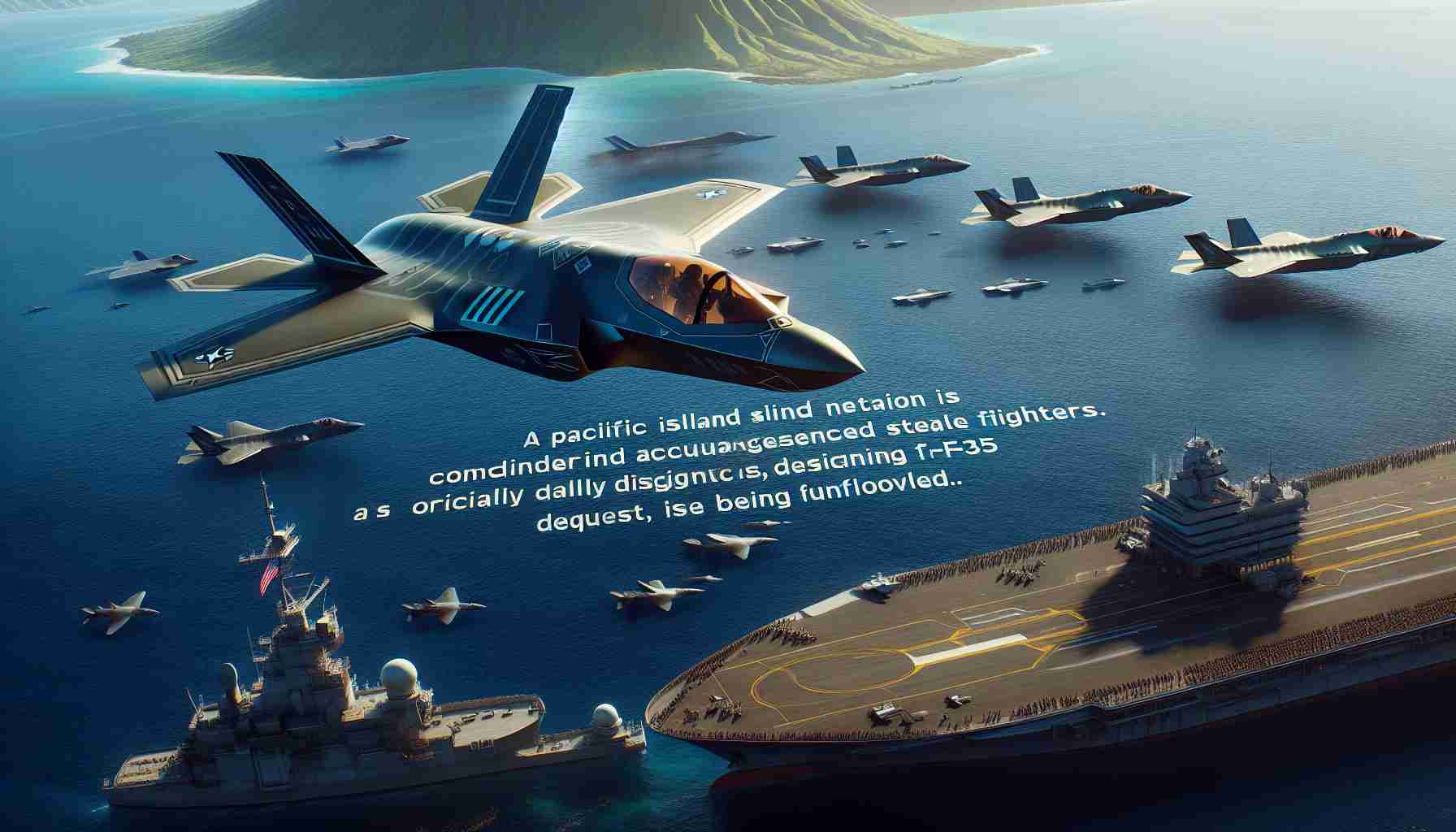Taiwan is reportedly looking to bolster its military capabilities by acquiring sophisticated weaponry from the United States, including the coveted F-35 fighter jets. Despite the ambitious move, there are lingering doubts about whether Washington will approve the deal, given longstanding fears about sensitive technology potentially reaching adversaries like China.
A report from the Financial Times sheds light on Taiwan’s recent outreach to former President Donald Trump’s transition team. The island nation aims to procure up to $15 billion in advanced military equipment to reinforce its defense strategy. Discussions hint at a substantial acquisition wishlist, including up to 60 F-35 jets, four E-2D Advanced Hawkeye aircraft, 10 retired Aegis-equipped warships, and 400 Patriot missiles.
The talks coincide with Trump’s vocal campaign assertions urging Taiwan to significantly increase its defense spending, suggesting a hike from the current 2.45% to 10% of the nation’s GDP. Trump also raised issues regarding Taiwan’s dominance in the semiconductor sector, accusing it of monopolizing the American chip market.
In a revealing confirmation last year, a high-ranking Taiwanese military official acknowledged Taiwan’s formal request for the F-35 aircraft, highlighting the strategic significance of such an acquisition. However, the proposal was initially met with reluctance from the United States, which declined to move forward with the sale.
The situation remains dynamic, with global geopolitical and economic implications potentially influencing future decisions.
The Strategic Implications of Taiwan’s Military Procurement: Beyond the F-35
In the backdrop of Taiwan’s efforts to acquire the highly advanced F-35 fighter jets from the United States, an underlying narrative of rapid technological evolution and geopolitical strategy unfolds. The potential procurement of this sophisticated weaponry not only underscores tensions in the Asia-Pacific region but also reveals broader implications for global technological advancements and national securities.
Unveiling the Technological Edge
The F-35 jets represent a significant leap in military technology, encompassing cutting-edge stealth capabilities, advanced avionics, and superior maneuvers, which are crucial for modern warfare. Taiwan’s interest in these jets highlights a broader trend among nations to secure technological supremacy in an era where air dominance is paramount for national security.
Interestingly, the F-35 program itself is mired in controversies. Despite its state-of-the-art technology, the fighter jet has faced numerous delays, cost overruns, and technical challenges, sparking debates about its reliability and efficacy. This raises the question: Is the pursuit of technologically advanced weaponry worth the associated risks and financial burdens?
Advantages and Disadvantages: A Double-Edged Sword
The acquisition of F-35s would undoubtedly enhance Taiwan’s defense capabilities, providing a strategic advantage against potential adversaries. The jets’ versatility in executing a range of missions—from air superiority to electronic warfare—could redefine Taiwan’s military strategy.
However, the deal also presents significant challenges. The high cost of acquisition and maintenance might strain Taiwan’s defense budget, necessitating cuts in other critical areas. Moreover, the transfer of such sensitive technology raises security concerns that it might inadvertently fall into the hands of rivals like China, ultimately escalating regional tensions.
The Broader Context: Semiconductors and Strategic Dependencies
Beyond military hardware, Taiwan’s strategic significance extends into the tech domain, notably in the semiconductor industry. Taiwan accounts for a sizable share of the world’s semiconductor production, making it an indispensable cog in the global supply chain. This dominance has led to accusations, such as those previously leveled by former President Trump, regarding market monopolization.
This dependency on Taiwanese semiconductors complicates international relations and highlights vulnerabilities in global technological supply chains. As digital transformation accelerates across sectors, securing a stable supply of semiconductors emerges as a critical issue for countries worldwide.
Advancing Technologies or Escalating Risks?
With technology increasingly becoming a weapon in geopolitical strategies, one must ponder: Are we advancing human capabilities or opening doors to new forms of conflict? The delicate balance between technological prowess and ethical governance remains a vital consideration for humanity’s forward march.
Related Links for Further Reading
– Financial Times
– BBC
– CNN
As the world watches Taiwan’s negotiations with the United States, the outcomes could not only redefine the island’s defense landscape but also chart a course for future technological warfare and international diplomacy.







